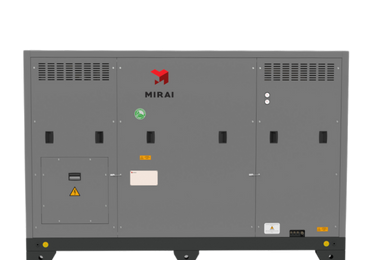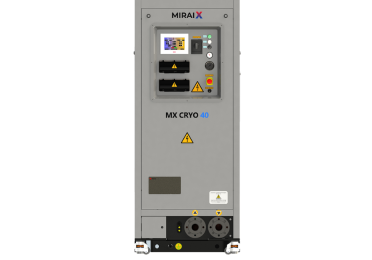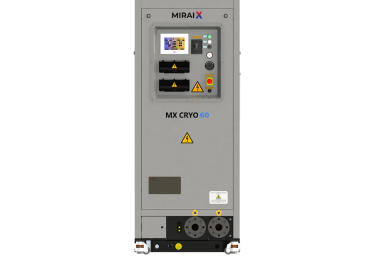What is a lyophilizer
What is a lyophilizer? A lyophilizer, also known as a freeze dryer, is a piece of equipment used primarily for the preservation of perishable materials by removing water from them, thereby inhibiting the growth of microorganisms and enzymes that cause spoilage. The lyophilizer meaning extends beyond its basic function, embodying a crucial technology in the realms of pharmaceuticals, biotechnology, medicine, and the food industry. This process, known as lyophilization or freeze-drying, is pivotal in various applications, including laboratory equipment and scientific research, thanks to its ability to preserve the structure and properties of the product being dried.
History of the Development of Lyophilization
Lyophilization's origins trace back to early 20th-century efforts in pharmaceutical preservation. The process gained significant attention during World War II, primarily for preserving blood plasma and penicillin. This era marked the transition from using lyophilization solely in laboratories to its integration into industrial applications. Mirai Intex, with its extensive experience in the lyophilization segment and numerous projects, stands as a testament to the technology's evolution. Their advancements have contributed significantly to refining freeze-drying techniques, making them more efficient and accessible across industries.
Applications of Lyophilization
In the pharmaceutical and biotechnological sectors, lyophilization is instrumental in extending the shelf life of drugs and biological materials without compromising their integrity or efficacy. It's similarly vital in the food industry, where it's used to produce lightweight, long-lasting products that retain much of their original flavor and nutritional value.
Principle of Operation
Physical Basis of Lyophilization (Sublimation)
Lyophilization operates on the principle of sublimation, the phase transition of a substance directly from a solid to a gas without passing through an intermediate liquid phase. This phenomenon underpins the freeze-drying process, enabling the removal of water from frozen materials under a vacuum.
Stages of Lyophilization
The process encompasses three primary stages: pre-freezing, sublimation, and desorption. During pre-freezing, the product is cooled below its freezing point. Sublimation then occurs, where ice converts directly into vapor under low pressure. Finally, desorption removes any bound water molecules, ensuring the material is thoroughly dry.
Equipment for Lyophilization (Lyophilizers)
Lyophilizers, or freeze-dryers, are sophisticated machines that facilitate this process. They range from small lab units to large industrial machines, designed to handle the specific requirements of various products and industries.
Advantages of Lyophilization
The benefits of lyophilization are numerous, including preservation of product structure and properties, increased shelf life, and reduction of product weight and volume. These advantages make the technology invaluable for easy transportation and storage of sensitive materials.
Limitations of Lyophilization
Despite its benefits, lyophilization has limitations, such as high operational costs, long process times, and restrictions on the types of products that can be effectively freeze-dried. These factors can make lyophilization less feasible for certain applications or smaller-scale operations.
Examples of Applications
Lyophilization's versatility spans several fields, including the preservation of medicines, preparation of food products, storage of biological materials, and even in the development of construction materials. Its ability to maintain the integrity of complex chemical and biological structures makes it an indispensable tool across these varied industries.
Development Perspectives
Expansion of Lyophilization Applications
The future of lyophilization looks promising, with ongoing research aimed at expanding its applications, improving efficiency, and making the technology more accessible. Innovations in equipment design and process optimization continue to open new avenues for freeze-drying applications.
Mirai Products in the Process
Mirai Intex's extensive experience in the lyophilization segment positions it at the forefront of this technology's development. Mirai refrigeration machines and solutions are designed to meet the evolving needs of industries reliant on freeze-drying, underscoring the potential for future advancements in this field. Mirai Intex X Cryo line and Closed cycle machines are the ideal solution for the lyophilization industry. These products could offer real-time data analytics for optimizing freeze-drying cycles,precious temperature accuracy with 0,5 degrees during significant changing loads, ensuring that products such as pharmaceuticals, food items, and biological samples are preserved at their peak quality.
Mirai Intex machines provide excellent temperature control, operational efficiency and no need for frequent machine maintenance by using air as a refrigerant. The use of air also ensures the guarantee of avoiding F-gas regulation.
Furthermore, Mirai's emphasis on sustainability could lead to the development of freeze dryers that use less energy, thereby reducing operational costs and environmental impact.The Mirai partners like GEA and HOF Sonderanlagen GmbH confirm that their Mirai refrigeration machine solutions are the most energy-efficient solutions available.
The integration of such advanced technologies into lyophilization equipment aligns with the growing demand for more efficient, eco-friendly, and cost-effective solutions in industries reliant on freeze-drying processes.
Conclusion
Understanding what a lyophilizer is and its significance in modern scientific and industrial applications reveals the indispensable role of freeze-drying technology in preserving the integrity, efficacy, and shelf life of a wide array of products. From its historical roots to its present-day applications and future development perspectives, lyophilization continues to be a cornerstone of innovation in pharmaceuticals, food preservation, biotechnology, and beyond. With companies like Mirai Intex leading the charge, the potential for lyophilization to enhance and expand its applications seems boundless, promising exciting advancements in the years to come.





